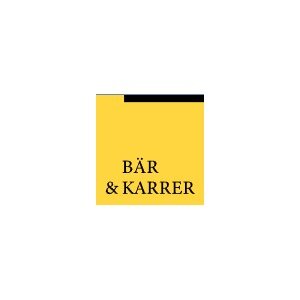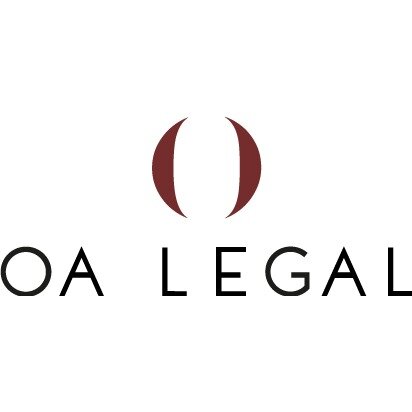Best Public-Private Partnerships (PPP) Lawyers in Geneva
Share your needs with us, get contacted by law firms.
Free. Takes 2 min.
List of the best lawyers in Geneva, Switzerland
About Public-Private Partnerships (PPP) Law in Geneva, Switzerland
Public-Private Partnerships (PPP) are collaborative agreements between public bodies and private sector entities to deliver infrastructure projects or services that benefit the public. In Geneva, Switzerland, PPPs are increasingly used for sectors such as transportation, energy, healthcare, and urban development. The legal environment for PPPs in Geneva is defined by a mix of federal and cantonal regulations, contractual principles, and best practice guidelines, shaped to ensure transparency, efficiency, and the balanced sharing of risks and rewards between public and private partners.
Why You May Need a Lawyer
Entering into or managing a PPP in Geneva often involves complex legal arrangements. Common situations where legal help is crucial include:
- Negotiating PPP contracts and understanding allocation of risks and responsibilities
- Ensuring compliance with public procurement and competition laws
- Resolving disputes or interpreting contractual clauses
- Structuring the financial aspects of the partnership
- Addressing regulatory or licensing issues during project development
- Advising on transparency and ethical standards in public deals
- Assisting with restructuring or exiting a PPP agreement
A lawyer experienced in PPPs can protect your interests, ensure compliance with local and national requirements, and help avoid costly mistakes.
Local Laws Overview
In Geneva, PPPs are governed by a framework that combines Swiss federal law, cantonal laws, and principles of contract law. Key legal elements include:
- Public Procurement Rules: All PPPs involving public bodies in Geneva must comply with the Swiss Federal Act on Public Procurement and the Geneva cantonal procurement law to ensure transparency and fair competition.
- Administrative Law: PPPs must adhere to public law principles, especially regarding accountability, pricing, and service delivery for public benefit.
- Contractual Framework: PPP arrangements are based on detailed contracts outlining responsibilities, performance standards, financial mechanisms, risk-sharing, and dispute resolution methods.
- Approval Procedures: Larger PPP projects may require approvals by the Geneva Grand Council or voters, especially if they involve significant public assets or long-term financial commitments.
- Sector-Specific Regulations: Some projects, based on sector (such as energy or health), require additional compliance with local or federal regulatory standards.
Geneva's legal system emphasizes safeguarding taxpayer funds, ensuring public oversight, and maintaining equitable collaboration between government and private actors.
Frequently Asked Questions
What is a Public-Private Partnership (PPP)?
A PPP is a structured collaboration between public authorities and private companies to deliver public infrastructure or services, typically involving shared investment, risks, and returns.
Are PPPs common in Geneva?
While not as widespread as in some other countries, PPPs are increasingly used in Geneva for projects like public transportation, hospitals, and infrastructure modernization.
How are PPPs regulated in Geneva?
PPPs in Geneva are governed by a combination of Swiss federal laws, Geneva cantonal regulations, and public procurement laws, along with the specific contract between partners involved in the project.
What are key advantages of PPP for the public sector?
PPPs can bring private sector expertise and financing, speed up project delivery, and improve efficiency in building and operating public infrastructure.
What risks should private partners be aware of?
Private partners may face risks related to political changes, regulatory requirements, demand for the service or facility, and financial arrangements.
Can foreign entities participate in PPP projects in Geneva?
Yes, foreign companies can partner in Geneva PPP projects, but they must comply with Swiss and cantonal laws, and in some cases, may need to establish a local presence or partnership.
What is the typical structure of a PPP agreement?
Most PPP agreements cover project scope, roles and responsibilities, financing mechanisms, performance standards, risk allocation, profit-sharing, and dispute resolution clauses.
How are disputes in PPPs resolved?
Disputes can be resolved through contractual procedures, mediation, arbitration, or by litigation in Swiss courts, depending on the agreement terms.
What public oversight exists in PPP projects?
PPP projects are subject to regular monitoring, audits, and, in some instances, public reporting requirements to ensure transparency and safeguard the public interest.
How long can a typical PPP contract last?
PPP contracts can last anywhere from five to thirty years or more, depending on the size, complexity, and nature of the project.
Additional Resources
For more information and support on PPPs in Geneva, the following resources and organizations can be useful:
- Geneva State Department of Infrastructure (Département des infrastructures)
- Swiss State Secretariat for Economic Affairs (SECO) - Public Procurement Unit
- Office of Public Procurement, Canton of Geneva
- Swiss PPP Association
- Geneva Chamber of Commerce, Industry and Services (CCIG)
- Swiss Civil Code and Contract Law principles (Federal and Cantonal sources)
Next Steps
If you need legal assistance regarding Public-Private Partnerships in Geneva, start by:
- Collecting all relevant documents and information about your project or interest in a PPP
- Identifying the specific legal questions or challenges you face
- Contacting a lawyer or legal advisor with experience in Swiss PPPs, public procurement, and the applicable sector
- Scheduling a consultation to discuss your objectives and receive an initial assessment of your options
- Following up to ensure compliance with all legal requirements and best practices throughout the PPP lifecycle
An experienced PPP lawyer can help clarify your position, negotiate beneficial terms, and guide you through each legal and regulatory step associated with your project in Geneva.
Lawzana helps you find the best lawyers and law firms in Geneva through a curated and pre-screened list of qualified legal professionals. Our platform offers rankings and detailed profiles of attorneys and law firms, allowing you to compare based on practice areas, including Public-Private Partnerships (PPP), experience, and client feedback.
Each profile includes a description of the firm's areas of practice, client reviews, team members and partners, year of establishment, spoken languages, office locations, contact information, social media presence, and any published articles or resources. Most firms on our platform speak English and are experienced in both local and international legal matters.
Get a quote from top-rated law firms in Geneva, Switzerland — quickly, securely, and without unnecessary hassle.
Disclaimer:
The information provided on this page is for general informational purposes only and does not constitute legal advice. While we strive to ensure the accuracy and relevance of the content, legal information may change over time, and interpretations of the law can vary. You should always consult with a qualified legal professional for advice specific to your situation.
We disclaim all liability for actions taken or not taken based on the content of this page. If you believe any information is incorrect or outdated, please contact us, and we will review and update it where appropriate.

















